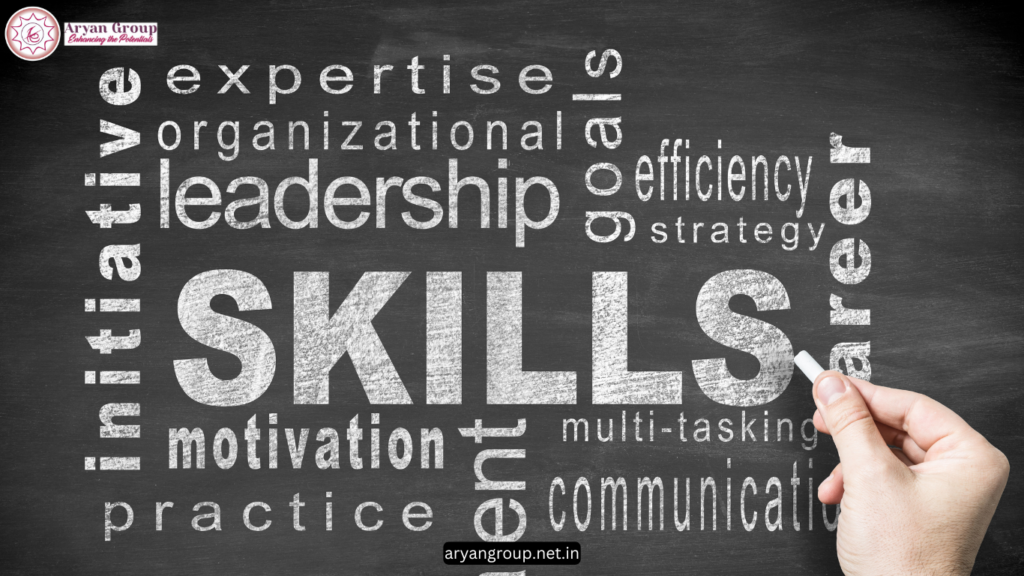Soft skills are often overlooked, but in today’s competitive job market, they are more important than ever. Whether you’re a student gearing up for your first job, a professional looking to advance, or a company seeking the right talent, mastering soft skills is essential.
What are Soft Skills?
Soft skills refer to non-technical abilities that influence how we interact with others, manage our work, and navigate professional environments. These include communication, teamwork, leadership, emotional intelligence, problem-solving, adaptability, and time management.
While hard skills demonstrate your technical abilities, soft skills show your ability to work well with others and adapt to different situations, making them invaluable across industries.
Why are Soft Skills Crucial in the Professional World?
In a rapidly evolving workplace, the emphasis on interpersonal relationships, communication, and collaboration continues to grow. Employers are not just looking for employees who can do the job but those who can work well with others and contribute to a positive work environment.
Key Reasons Why Soft Skills Matter:
- Enhancing Teamwork and Collaboration
Effective collaboration requires trust, communication, and conflict resolution. Soft skills facilitate open communication, enabling teams to work cohesively towards common goals. In the modern workforce, collaboration tools (such as Slack, Trello, and Zoom) require excellent communication to ensure project success. - Effective Leadership and Management
Leaders with strong soft skills—such as empathy, active listening, and emotional intelligence—create more engaged teams. A manager who listens to their employees and helps resolve conflicts effectively is much more likely to foster a productive and positive team culture. - Client Relations and Customer Service
Whether in sales or client service roles, soft skills play a pivotal role in creating positive interactions. Professionals who can listen to client needs, respond with empathy, and communicate clearly are invaluable to any organization. - Adaptability in a Changing World
The fast-paced nature of today’s world means that adaptability is essential. Employees who are flexible and open to change are better equipped to handle transitions, whether it’s adopting new technology or adjusting to changing work environments (e.g., remote work).
Soft Skills Vs. Hard Skills: Why the Balance Matters
Both soft skills and hard skills are important, but balancing the two can make or break your success. Hard skills are the technical abilities you need to perform a job, while soft skills allow you to effectively use those hard skills in a real-world environment.
| Soft Skills | Hard Skills |
|---|---|
| Communication | Coding |
| Teamwork | Data Analysis |
| Time Management | Engineering |
| Adaptability | Accounting |
For example, an accountant with exceptional technical skills but poor communication abilities may struggle to explain financial insights to non-financial colleagues. Conversely, an employee who excels at communication but lacks the necessary technical skills will find it hard to keep up with the demands of the role.
Essential Soft Skills for Students, Employees, and Leaders
Here’s a breakdown of the most sought-after soft skills in today’s professional world:
1. Communication Skills
Communication is the cornerstone of every relationship. Whether it’s verbal, non-verbal, or written communication, it impacts how you present ideas and influence others. Strong communicators can effectively articulate their thoughts, actively listen, and adjust their communication style to suit their audience.
- For Students: Participating in group discussions, working on presentations, and collaborating with classmates helps sharpen communication skills.
- For Employees: Communicating with colleagues and clients ensures clarity and prevents misunderstandings.
- For Leaders: Communication is critical in motivating teams, managing conflicts, and setting clear expectations.
2. Emotional Intelligence (EI)
EI is the ability to recognize, understand, and manage your emotions while being mindful of others’ feelings. Emotional intelligence improves empathy, strengthens relationships, and enhances decision-making.
3. Problem-Solving
Critical thinking and problem-solving abilities help professionals tackle challenges efficiently. Companies seek employees who are proactive in identifying problems and coming up with effective solutions.
- Example: A marketing team encountering a sudden drop in engagement might use problem-solving skills to analyze data, brainstorm potential solutions, and adjust their strategy accordingly.
4. Adaptability
The ability to adjust to change and remain flexible is crucial in today’s evolving workplace. Technology is constantly changing, and so are market trends. Being adaptable allows professionals to stay relevant and quickly adjust to new challenges.
5. Teamwork and Collaboration
Teamwork is about working with others to achieve a common goal. It involves sharing responsibilities, offering support, and being open to others’ ideas. Strong collaborators listen actively and contribute their insights while respecting diverse perspectives.
How to Develop and Improve Your Soft Skills
If you feel that your soft skills need some improvement, don’t worry—there are ways to develop them! Unlike technical skills, which may require formal education, soft skills can be practiced and honed in day-to-day situations.
Tips for Improving Soft Skills:
- Adopt a Growth Mindset in Leadership Roles: Volunteer for leadership positions in group projects or social organizations to develop leadership and communication skills while believing in your ability to improve through effort.
- Practice Active Listening with a Mindful Attitude: Pay attention during conversations, focus on the speaker, and ask clarifying questions to show understanding, cultivating a present and thoughtful approach.
- Embrace Feedback with an Open Mind: Constructive criticism helps you see areas where you can grow, whether in communication, teamwork, or time management, fostering a mindset of continuous improvement.
- Engage in Group Activities with a Collaborative Spirit: Joining a club or participating in team sports is an excellent way to enhance collaboration skills while developing a team-oriented mindset.
- Expand Your Mindset through Reading on Emotional Intelligence and Leadership: Learning from experts in the field can provide insight into improving your emotional intelligence and decision-making abilities, while also encouraging a mindset focused on personal and professional growth.
Key Takeaways
- Soft skills are essential in creating positive relationships, building a successful career, and contributing to workplace culture.
- Balancing soft skills with hard skills increases your value as a professional.
- The ability to communicate effectively, work in a team, solve problems, and adapt to change will set you apart.
- For students, employees, and leaders alike, investing in soft skills is crucial for long-term career success.
Frequently Asked Questions (FAQs)
1. Why are soft skills more important today than before?
Soft skills are critical in a modern, fast-paced work environment where collaboration, adaptability, and communication are highly valued.
2. Can soft skills be learned?
Absolutely! Soft skills can be developed over time through practice, feedback, and self-awareness.
3. What are the top soft skills companies look for?
Communication, teamwork, problem-solving, adaptability, leadership, and emotional intelligence are among the top soft skills employers prioritize.
4. Are soft skills more important than hard skills?
Both are important. Soft skills complement hard skills by enabling you to use your technical knowledge effectively in team settings and leadership roles.
5. How can I assess my soft skills?
Self-assessment, feedback from peers or mentors, and reflecting on your performance in team situations can help you evaluate your soft skills.
6. Can soft skills improve my chances of getting a job?
Yes! Many employers prioritize soft skills when hiring because they indicate how well a candidate will fit into the company culture and work with others.
7. How do I showcase my soft skills on my resume?
Use specific examples from your experience that highlight how you’ve used soft skills, such as teamwork, problem-solving, and leadership, in previous roles.


Pingback: Work Life Balance: Thrive at Work and Home